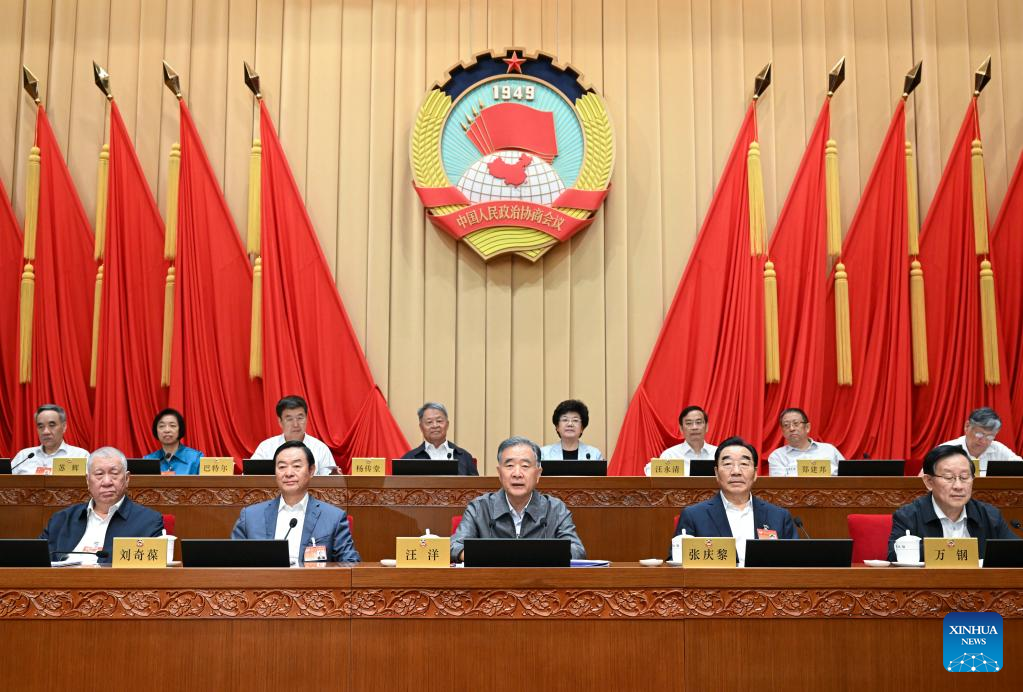Ideas shared to improve job market
By CHENG SI | CHINA DAILY | Updated: 2022-08-25 09:03

Advisers discuss employment issues facing graduates, migrant workers
National political advisers have presented their ideas on helping the nation tackle its employment problems, which have been compounded by COVID-19 and an economic slowdown.
Held from Monday to Wednesday, a session of the Standing Committee of the 13th National Committee of the Chinese People's Political Consultative Conference focused on stabilizing the job market by implementing an employment-first policy.
Wang Yang, a member of the Standing Committee of the Political Bureau of the Communist Party of China Central Committee and chairman of the CPPCC National Committee, said at the session's closing ceremony that implementing the employment-first policy is due to employment being a key foundation for the nation's economic and social development.
He said that the nation has achieved great progress in promoting employment, while the job market still faces complicated and tough challenges that shouldn't be underestimated.
He said that the national political advisers should use their talent and strengths to help the nation stabilize economic expectations and the job market.
He said that government bodies should improve their research into the long-term impacts that industrial revolution and an aging problem will bring to future employment. It's also necessary to improve the labor force's working skills to help relieve structural imbalances in the job market.
During the three-day session, the employment of some key groups, including military veterans, college graduates and migrant workers, was stressed.
Zhang Lianqi, a member of the Standing Committee of the 13th CPPCC National Committee, expressed his concerns about the employment of young people, especially college graduates, and their higher unemployment rate in the past few months.
"The unemployment rate of young people aged 16 to 24 in urban areas increased in the past three months, reaching 18.2 percent in April, 18.4 percent in May and 19.3 percent in June. The number rose again to 19.9 percent in July," he said at a sideline event of the session.
He said the shocks that COVID-19 outbreaks have inflicted on companies have exacerbated their difficulties and thus weakened their capability of offering employment to young job seekers.
Also, the available vacancies may not live up to young people's expectations of higher payment and social status, which may dampen their interest.
Allowing for the problems young people are encountering in the job market, Zhang suggested that the nation improve the system of lifelong education and working skills training to balance market needs and labor force supplies.
"The balance can't be reached overnight. We should not only put our focus on the current situation, but on the next 10 or 20 years to establish a sound education and training system to enable people to get access to more suitable jobs," he said.
The employment of migrant workers, who usually choose to return to their hometowns to farm if they lose their jobs in urban areas, also attracted the attention of the national political advisers.
Liu Xiaozhuang, a member of the Standing Committee of the 13th CPPCC National Committee, said that migrant workers have faced a higher unemployment rate due to epidemic shocks, and have also had problems starting their own businesses due to a lack of financial support, management experience and higher skills.
According to Liu, migrant workers usually work in labor-intensive industries such as construction, manufacturing and domestic services, and whose jobs are not that stable.
He suggested that the government release more supportive policies for migrant workers to stimulate their passions for entrepreneurship, for example by giving them higher financial allowances and streamlining administrative procedures on tax reduction and subsidized loans for migrant worker entrepreneurs. It's also of importance to organize working skills training programs for migrant workers to improve their skills and know-how about starting a business.
The government can also develop some new industries that take advantage of rural resources, for example by developing rural tourism, leisure resorts and e-commerce in the countryside to offer more job opportunities for migrant workers, Liu said.
























